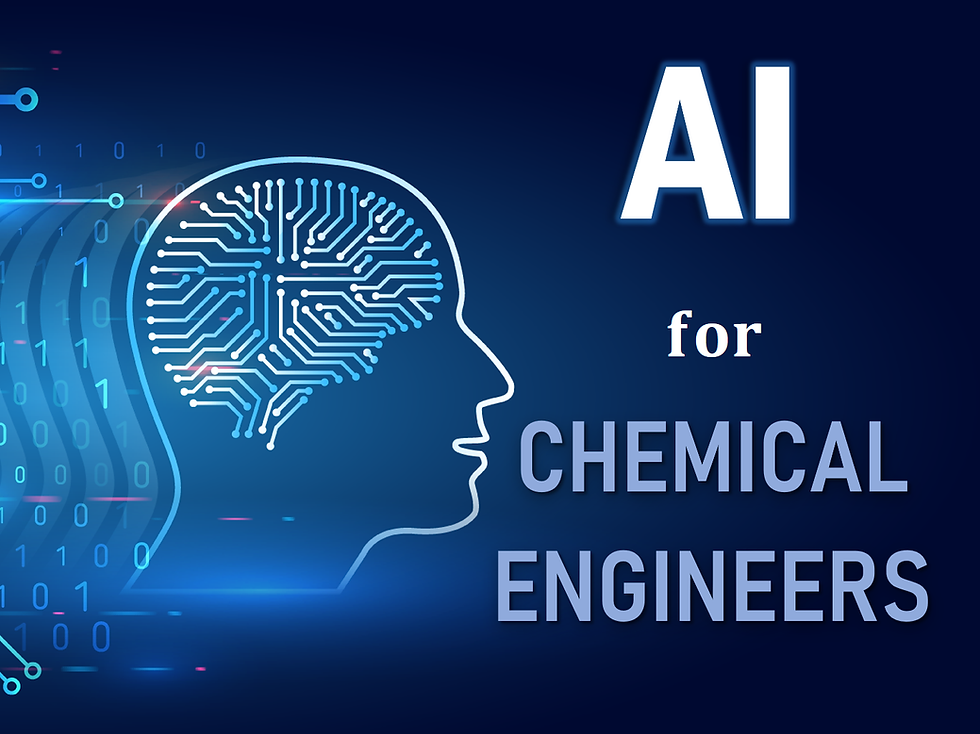Are We Ready for the Era of Chemical Industry 4.0?
- Chemojo
- Jan 31, 2024
- 3 min read
In the narrative of the 21st century, the chemical industry's digital evolution emerges as a pivotal chapter, titled 'industry 4.0' – marking the fourth revolution in manufacturing. Unlike its predecessors, this revolution leverages autonomous systems driven by data and machine learning. Even in its early stages, Industry 4.0 reshapes manufacturing significantly, demanding our focused attention.
As Industry 3.0 introduced computers, Industry 4.0 propels them into interconnected systems capable of autonomous decision-making. This shift is powered by cyber-physical systems, known as the Internet of Things (IoT), creating smart factories that thrive on efficiency and reduced wastage. The true power lies in the interconnected network of machines, forming a digital symphony where collective intelligence transcends individual capabilities.
Join us in exploring Chemical Industry 4.0, where traditional chemical plants metamorphose into nodes in a digital network. The possibilities are exhilarating – a symphony of efficiency, sustainability, and unprecedented insights. This is not just a transformation of the beaker; it's a redefinition of chemical manufacturing. The future pulsates with the energy of Industry 4.0 – a revolution that demands active participation.

Implementation in the Chemical Industry: A Comprehensive Exploration
1. Digital Advancement in Chemical Processes
Digitization in the chemical industry involves integrating digital technologies to optimize processes and enhance decision-making. Advanced sensors collect real-time data on temperature, pressure, and other parameters, creating a digital twin of the manufacturing environment. This virtual replica enables operators to monitor and analyze operations, predict potential issues, and optimize performance. By embracing digitization, chemical plants gain unprecedented visibility and control over their processes, leading to improved efficiency and reduced operational risks.
2. Interconnected Systems through the Internet of Things (IoT)
Sensors and devices embedded in equipment and machinery gather data, facilitating real-time monitoring and control. This connectivity enables predictive maintenance, as anomalies and potential failures can be identified before they escalate, reducing downtime and maintenance costs. Additionally, seamless communication among machines enhances overall operational efficiency, creating a smarter and more responsive manufacturing environment.
3. Data-Driven Decisions
Chemical Industry 4.0 recognizes the importance of innovation driven by customer needs. By leveraging data analytics, manufacturers can gain insights into market trends and consumer preferences. This information allows for the customization of products and processes to meet dynamic customer needs. Whether it's adapting formulations or adjusting production schedules, a customer-centric approach ensures the industry remains agile and responsive to the evolving demands of the market.
4. Optimizing Production and Material Management
The implementation of Industry 4.0 technologies enhances production and material management in the chemical industry. Advanced analytics and machine learning algorithms optimize production processes, ensuring efficient resource utilization and minimizing waste. Intelligent systems forecast demand, allowing for better inventory management and reduced holding costs. This results in a streamlined supply chain, improved production planning, and ultimately, increased overall operational efficiency.
5. Sustainable Practices within a Circular Economy
Embracing a circular economy model is a fundamental aspect of Chemical Industry 4.0. This involves minimizing waste, promoting recycling, and reusing materials within the production cycle. By adopting sustainable practices, chemical manufacturers contribute to environmental conservation while potentially reducing costs associated with raw materials. The circular economy approach aligns with global efforts towards sustainability and positions the industry as a responsible steward of resources.
6. Efficiency Through Waste Reduction
By leveraging data analytics and real-time monitoring, manufacturers can identify inefficiencies in processes, optimize production parameters, and reduce the generation of by-products. This not only enhances sustainability but also contributes to cost-effectiveness by minimizing raw material and energy wastage.
7. Revolutionizing Cleanliness with Automated Cleaning Systems
Cleaning-In-Place (CIP) systems, powered by Industry 4.0, revolutionize hygiene and maintenance practices in chemical manufacturing. Automated cleaning processes, guided by real-time data, ensure thorough cleaning without the need for manual intervention. This not only reduces downtime but also enhances safety and compliance with stringent cleanliness standards. CIP systems exemplify how digitalization improves operational efficiency while maintaining the highest quality and safety standards.
The Future is Now !
Chemical Industry 4.0 is not a futuristic pipe dream; it's happening right now. Early adopters are reaping the rewards of increased efficiency, improved safety, and a stronger competitive edge. The question is not whether to join the revolution, but how quickly you can dive in. So, gather your data like you gather your glassware, unleash the power of analytics, and watch your chemical plant transform into a data-driven masterpiece.
I hope you found this blog post informative. Let me know your opinion on this in the comment box.
"Check it out our blog on how AI can help Chemical Engineers."
Click on image !
Thankyou!
How do you view the impact of Industry 4.0 on chemical manufacturing efficiency?
Absolutely, it's a game-changer.
I'm optimistic but would like more evidence.
I'm uncertain.
I don't think it will make a substantial difference. Make it
Keywords: Chemical Industry 4.0, Big Data, Analytics, Predictive Maintenance, Real-Time Optimization, Data-Driven Decision-Making, Chemical Engineering, Process Optimization, Efficiency, Sustainability, Digital Transformation, Artificial Intelligence, Machine Learning, Industry Trends.
#EngineeringInnovations #BuildingTheFuture #STEMMatters #EngineeringExcellence #ProblemSolvers #InspiringInnovation #TechGenius #EngineeringLife #EngineeringPride #MakersAndCreators #IngeniousMinds #EngineeringPassion #Engineering #Engineers #Chemicalengineers #Chemicalengineering #Processengineers #ArtificalInteligence




nice post!
Enrico S.